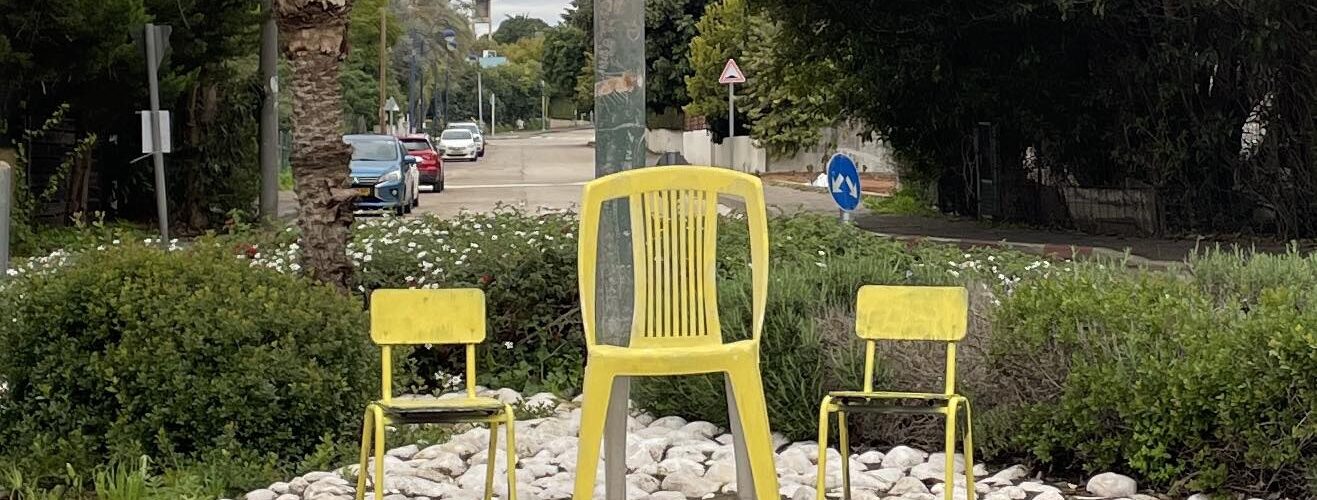Through my work, I was recently given the opportunity to spend a few hours in the presence of a large group of Israeli 12th graders. On the surface, they seemed like “regular” kids – talking, laughing, leaning into one another with practiced, intimate ease. Sweet, beautiful teens being regular teens. Except that these kids were from the Gaza border communities – survivors of the October 7th atrocities. Some had lost siblings and other family members – some had even watched it happen. Others had friends and loved ones who were abducted to Gaza – some of them are still there, including grandparents. One of their classmates was murdered. These teens had, quite literally, survived the largest mass murder of Jews in a single day since the Holocaust.
I stood to the side, exchanging a few words with the educators who had been working with them and with my colleagues who were there to lead the activity. I chose not to interact with the kids. It wasn’t my place to do so, nor did I want to risk altering the dynamic in any way. Instead, I observed, watching the way they communicated with one another and with their educators, and I watched their body language. The joking around. The hugs and the physical closeness. The kids who were quieter and more pensive. The kids who would step away from the group because they needed a moment.
And as I watched them, these teens being teens, I tried to imagine what they had been through that day – the abject terror they must have felt. I couldn’t, obviously. How can anyone truly and accurately imagine the horrors of living through a diabolical, brutal massacre in real time? Watching your siblings or parents attacked, murdered, and kidnapped? Hiding in the safe room in your home, praying that the terrorists wouldn’t find you or try to burn down your house with you in it? Hearing gunshots and explosions, screaming and eerie silence.
Observing these kids was humbling. Even though I knew of their resilience and their strong desire to move forward, I couldn’t help but think of how their world had changed forever, and that there would always be a “before” and an “after”. And it isn’t over. Their homes and communities were destroyed. They are grieving the losses of friends and loved ones. Members of their families are still hostages in Gaza. If I allow myself to think of all that they have experienced and lost, I am brought to tears. This isn’t something that adults should be forced to experience, let alone kids.
If I’m being honest, the impact of the past nine months on our country often brings me close to tears as well. We are still living in a collective, hellish limbo. As life grows around grief following the loss of a loved one, our lives have grown around October 7th. It’s part of everything we do, and it is constantly all around us. It’s in the restaurants when we meet up with friends and the stores when we shop. It dances among us when we celebrate weddings. It comes with us if we travel. When we sleep, it enters our dreams – and our nightmares.
And that doesn’t even take into account the purgatory in which the families of the hostages have existed since their loved ones were taken. The absence of these stolen people (who are being treated quite badly, despite what some people seem to think) is felt everywhere and by everyone, and we cannot accept a scenario where these members of our family—for that is what they have become to all of us—are not returned to Israel.
Can you dare to imagine what the hostages are going through? I think about baby Kfir, who has now spent more of his life as a hostage in Gaza than as a child in Israel (and that’s assuming he’s still alive – we have no idea because Hamas won’t tell us). The elderly men, including Holocaust survivors, being tortured and kept in deplorable conditions. The women and men being abused. The male soldiers who are the same age as my son. The female soldiers, who could very well be pregnant after being raped by their captors. Those who have been killed or died in captivity. The people who were murdered in Israel on October 7th, and whose bodies were dragged into Gaza and are still being held by Hamas. What kind of sadistic bastards kidnap dead people?
Now try to imagine your kids surviving a massacre by hiding in a locked safe room (or trying to run away from a dance festival), gripped by sheer terror – for hours. Does it make your blood run cold to think about your children, your parents, your siblings, your grandparents getting dragged across a border against their will by terrorists and being held in horrifying, torturous conditions for months, with few to no signs of life? Now you know how we’ve been feeling every day for the past nine months.
